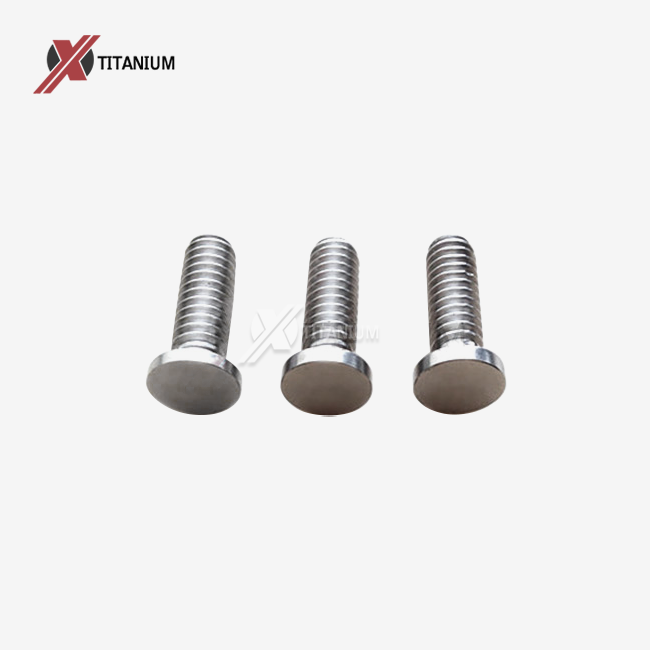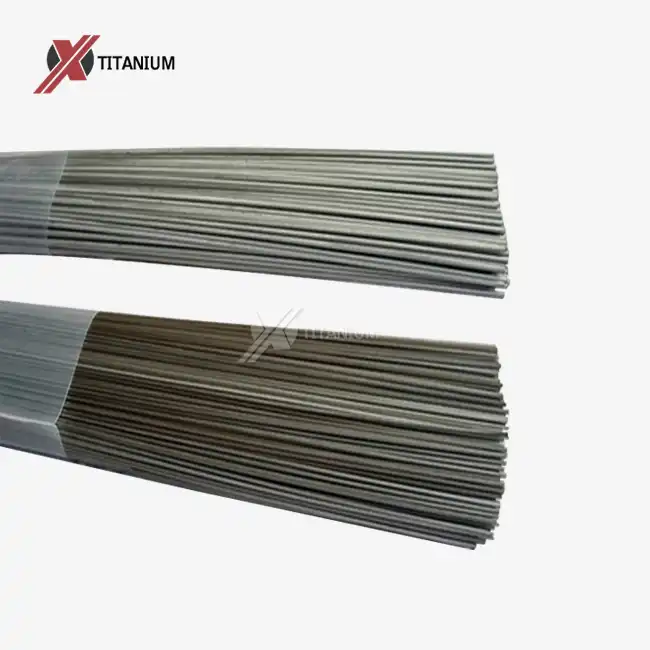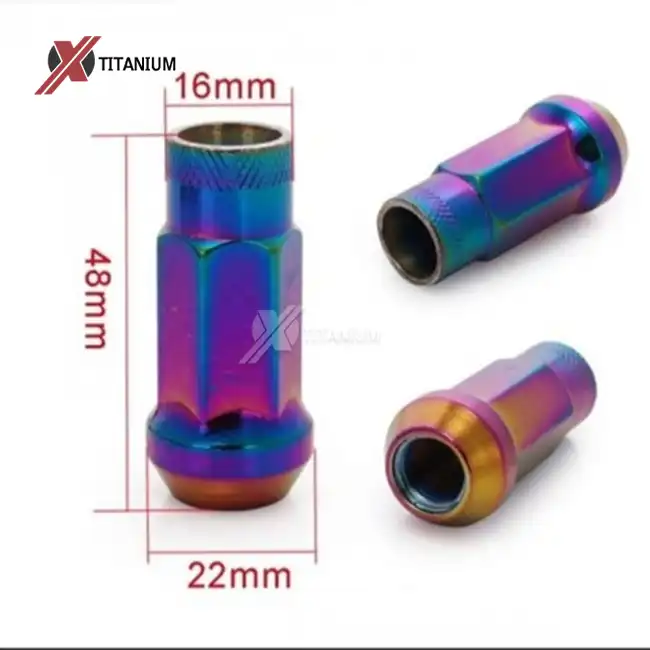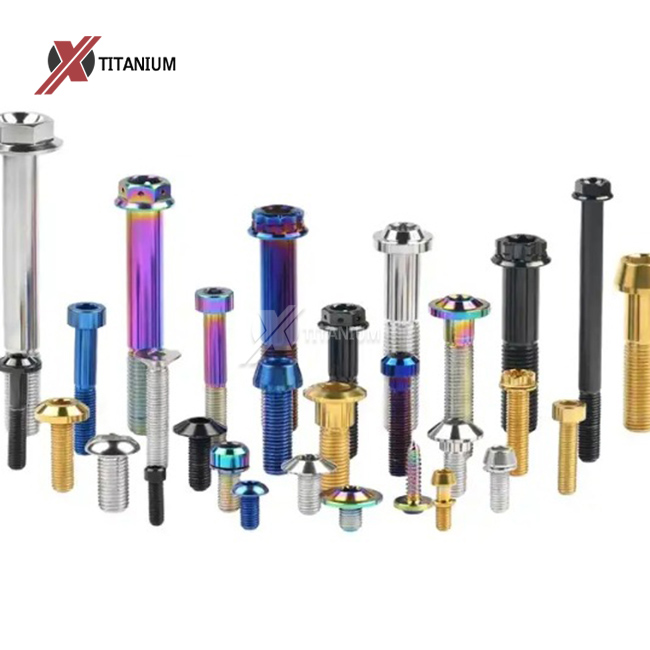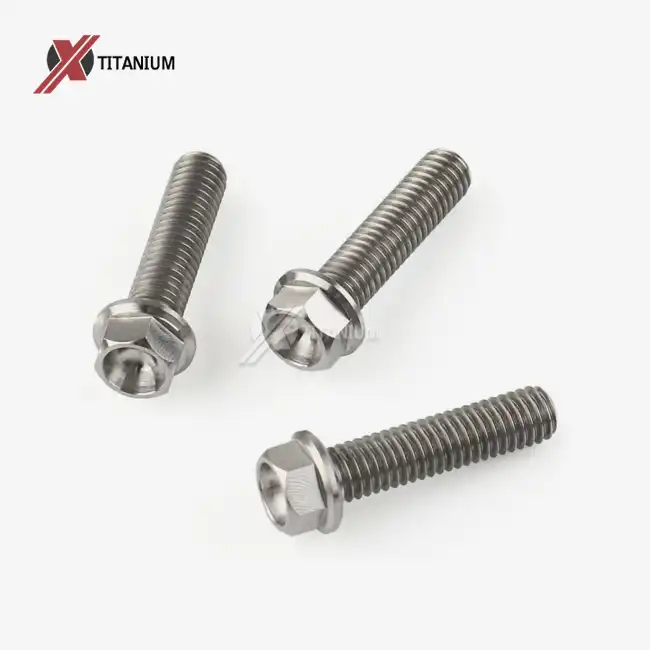Understanding the Corrosion Resistance of Titanium
Titanium's corrosion resistance is a remarkable property that sets it apart from many other metals. This resistance stems from the formation of a thin, stable oxide film on the surface of titanium when exposed to oxygen. This film, primarily composed of titanium dioxide, acts as a protective barrier, preventing further oxidation and corrosion of the underlying metal.
The stability of this oxide layer is key to titanium's corrosion resistance. Unlike some other metals that form oxide layers, titanium's oxide film remains intact and self-healing even when damaged. This means that if the surface is scratched or abraded, the oxide layer will quickly reform, maintaining its protective properties.
Factors Affecting Titanium's Corrosion Resistance
While titanium is highly corrosion-resistant, several factors can influence its performance:
- Alloy composition: Different titanium alloys may exhibit varying levels of corrosion resistance. For instance, Grade 5 titanium (Ti-6Al-4V) used in many titanium flat head screws offers excellent corrosion resistance.
- Environmental conditions: The pH level, temperature, and presence of specific chemicals can impact titanium's corrosion resistance.
- Surface treatment: Processes like anodizing can enhance the natural corrosion resistance of titanium flat head screws.
Understanding these factors is crucial for selecting the appropriate titanium flat head screws for specific applications, ensuring optimal performance and longevity.
Comparative Analysis: Titanium vs. Other Materials
When it comes to corrosion resistance, titanium flat head screws outperform many other materials commonly used in fasteners. Let's compare titanium to some of these alternatives:
Titanium vs. Stainless Steel
Stainless steel is known for its corrosion resistance, but titanium surpasses it in several aspects:
- Saltwater resistance: Titanium is virtually immune to saltwater corrosion, while even high-grade stainless steels can experience pitting in marine environments.
- Chemical resistance: Titanium resists a broader range of chemicals, including strong acids and chlorine compounds, which can corrode stainless steel.
- Strength-to-weight ratio: Titanium flat head screws offer superior strength at a lower weight compared to stainless steel alternatives.
Titanium vs. Aluminum
While aluminum is lightweight and resistant to some forms of corrosion, titanium offers several advantages:
- Higher strength: Titanium flat head screws provide greater strength and durability than aluminum screws.
- Better acid resistance: Titanium resists a wider range of acids that would quickly corrode aluminum.
- Temperature resistance: Titanium maintains its properties at higher temperatures where aluminum might weaken.
Titanium vs. Brass
Brass is often chosen for its corrosion resistance in certain applications, but titanium offers distinct benefits:
- Superior strength: Titanium flat head screws are significantly stronger than brass screws.
- Broader chemical resistance: Titanium resists a wider range of chemicals that might corrode brass.
- Lower density: Titanium screws are lighter than brass alternatives, making them ideal for weight-sensitive applications.
Applications Leveraging Titanium's Corrosion Resistance
The exceptional corrosion resistance of titanium flat head screws makes them invaluable in numerous industries and applications. Let's explore some key areas where these fasteners excel:
Marine and Offshore Applications
In marine environments, corrosion is a constant threat. Titanium flat head screws are extensively used in:
- Shipbuilding: For hull fittings, deck hardware, and interior components.
- Offshore platforms: In critical structural elements and equipment attachments.
- Underwater vehicles: For assemblies in submersibles and ROVs (Remotely Operated Vehicles).
Aerospace Industry
The aerospace sector demands materials that are both lightweight and corrosion-resistant. Titanium flat head screws find applications in:
- Aircraft structures: For joining critical components in fuselage and wing assemblies.
- Engine components: In areas exposed to high temperatures and corrosive exhaust gases.
- Space vehicles: For assemblies that must withstand extreme conditions and temperature fluctuations.
The combination of corrosion resistance and high strength-to-weight ratio makes titanium flat head screws indispensable in aerospace engineering.
Chemical Processing Industry
In chemical processing plants, equipment must withstand exposure to a wide range of corrosive substances. Titanium flat head screws are utilized in:
- Reaction vessels: For securing linings and internal components.
- Piping systems: In joints and flanges handling corrosive chemicals.
- Heat exchangers: For assembling components exposed to both heat and corrosive fluids.
The resistance of titanium to acids, alkalis, and chlorine compounds makes it an ideal choice for these demanding applications.
Medical and Biomedical Applications
The biocompatibility and corrosion resistance of titanium make it essential in medical applications:
- Surgical implants: For securing prosthetics and orthopedic devices.
- Dental implants: As screws for anchoring artificial teeth.
- Medical instruments: In devices that require sterilization and resistance to bodily fluids.
Titanium's ability to resist corrosion in the presence of bodily fluids ensures long-term safety and effectiveness in medical applications.
These applications demonstrate the versatility and importance of titanium flat head screws in industries where corrosion resistance is critical. As technology advances and new challenges emerge, the use of these corrosion-resistant fasteners is likely to expand into even more specialized fields.
Conclusion
Titanium flat head screws stand out as a superior choice in applications demanding high corrosion resistance. Their ability to withstand harsh environments, coupled with excellent strength-to-weight ratios, makes them invaluable in industries ranging from marine and aerospace to chemical processing and medical technology. As we continue to push the boundaries of engineering and design, the role of these corrosion-resistant fasteners is likely to grow, opening new possibilities for innovation and durability in challenging environments.
For more information about titanium flat head screws and other titanium products, please contact Baoji Chuanglian New Metal Material Co., Ltd. at info@cltifastener.com or djy6580@aliyun.com. Our team of experts is ready to assist you in finding the perfect titanium solution for your specific needs.
